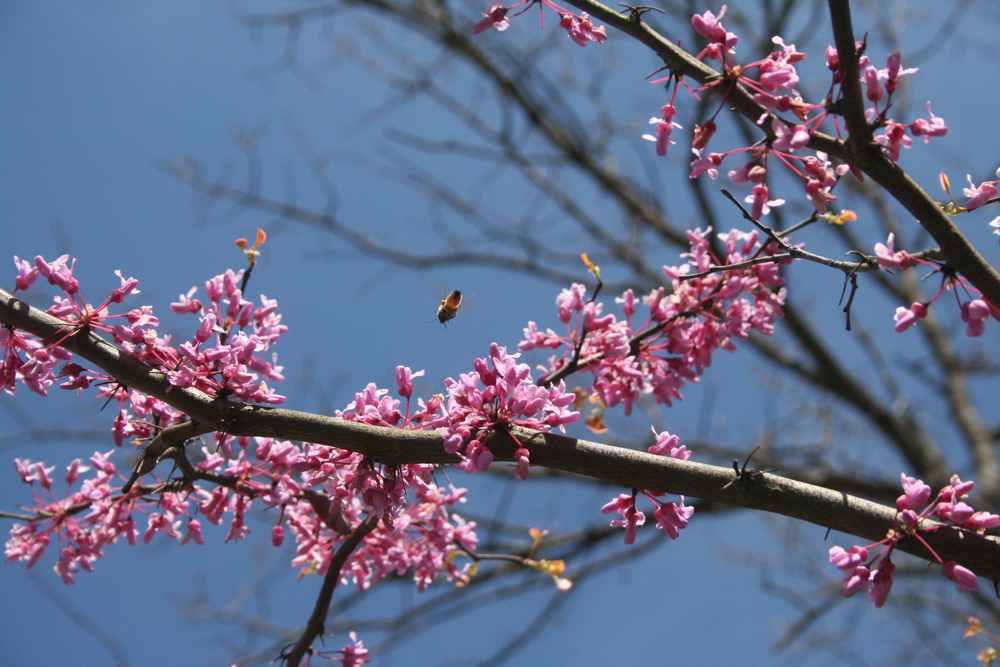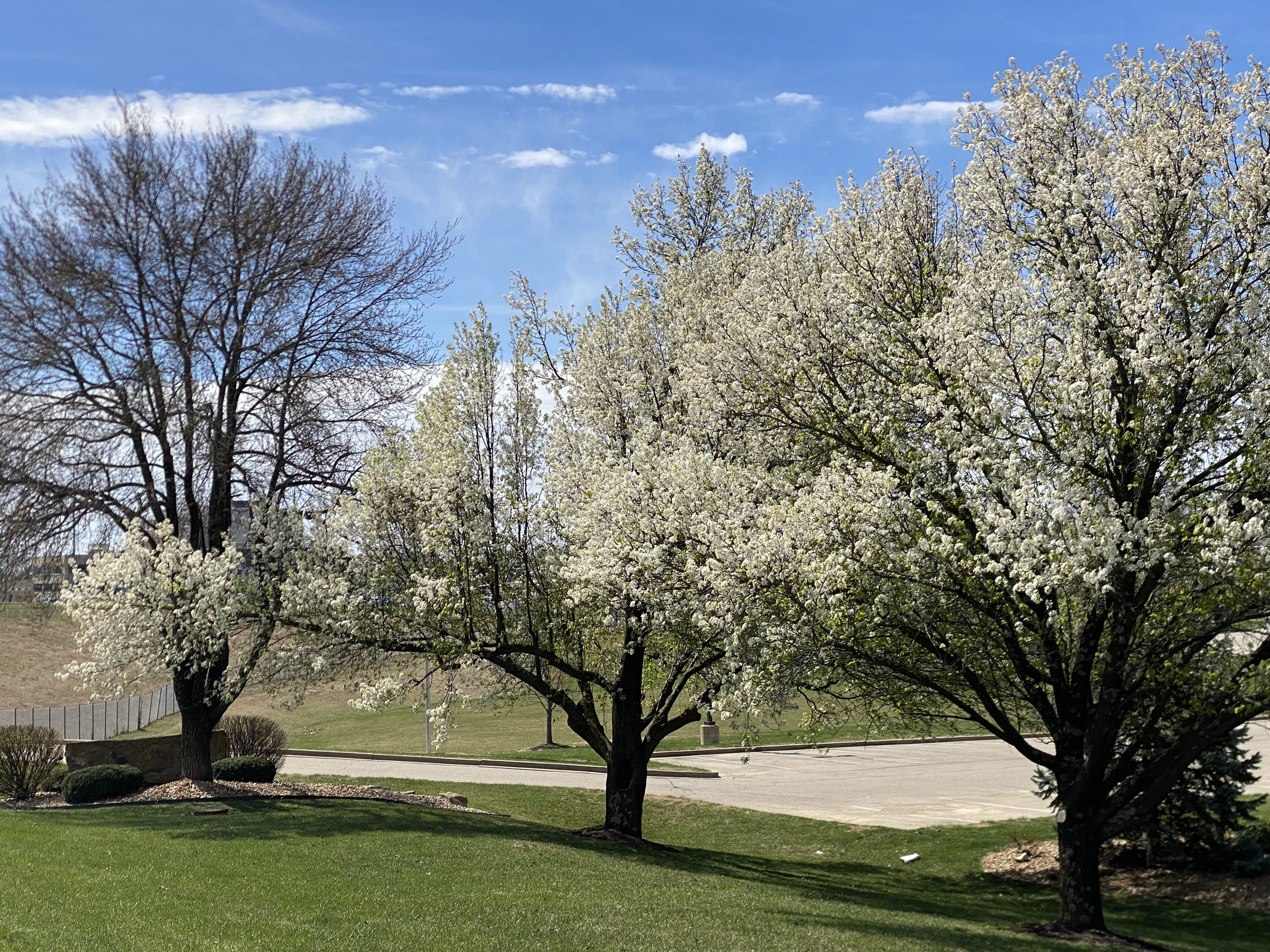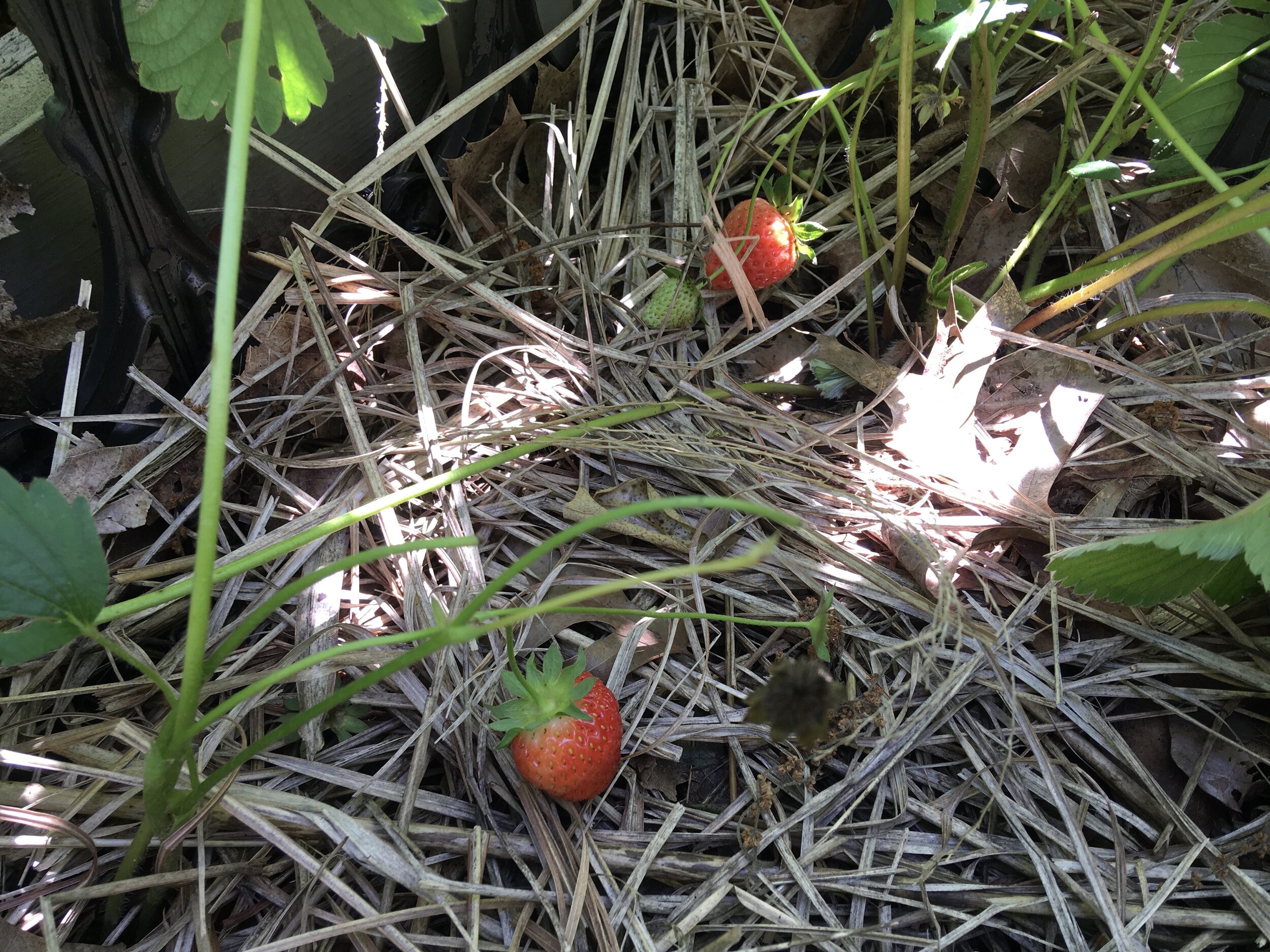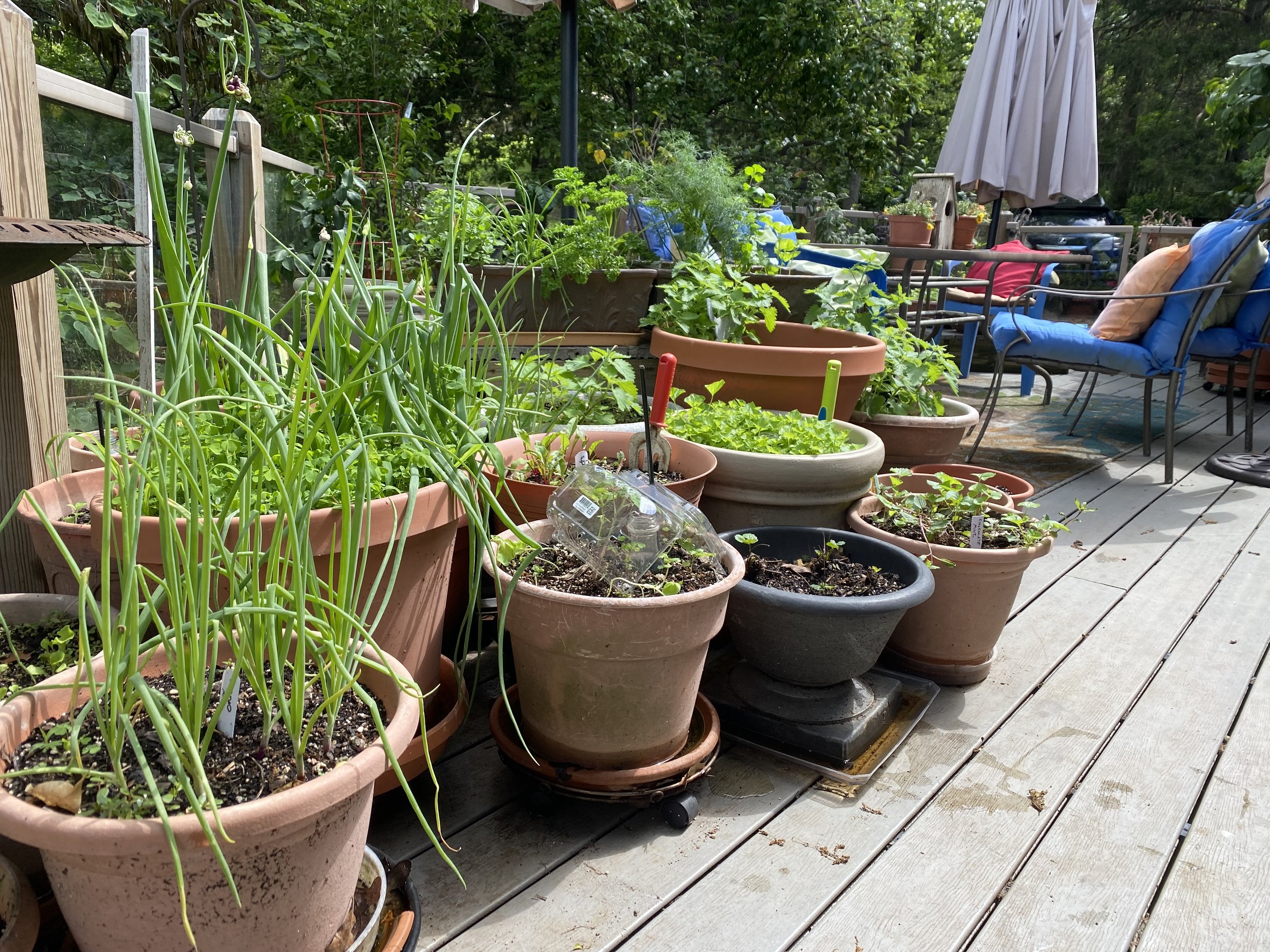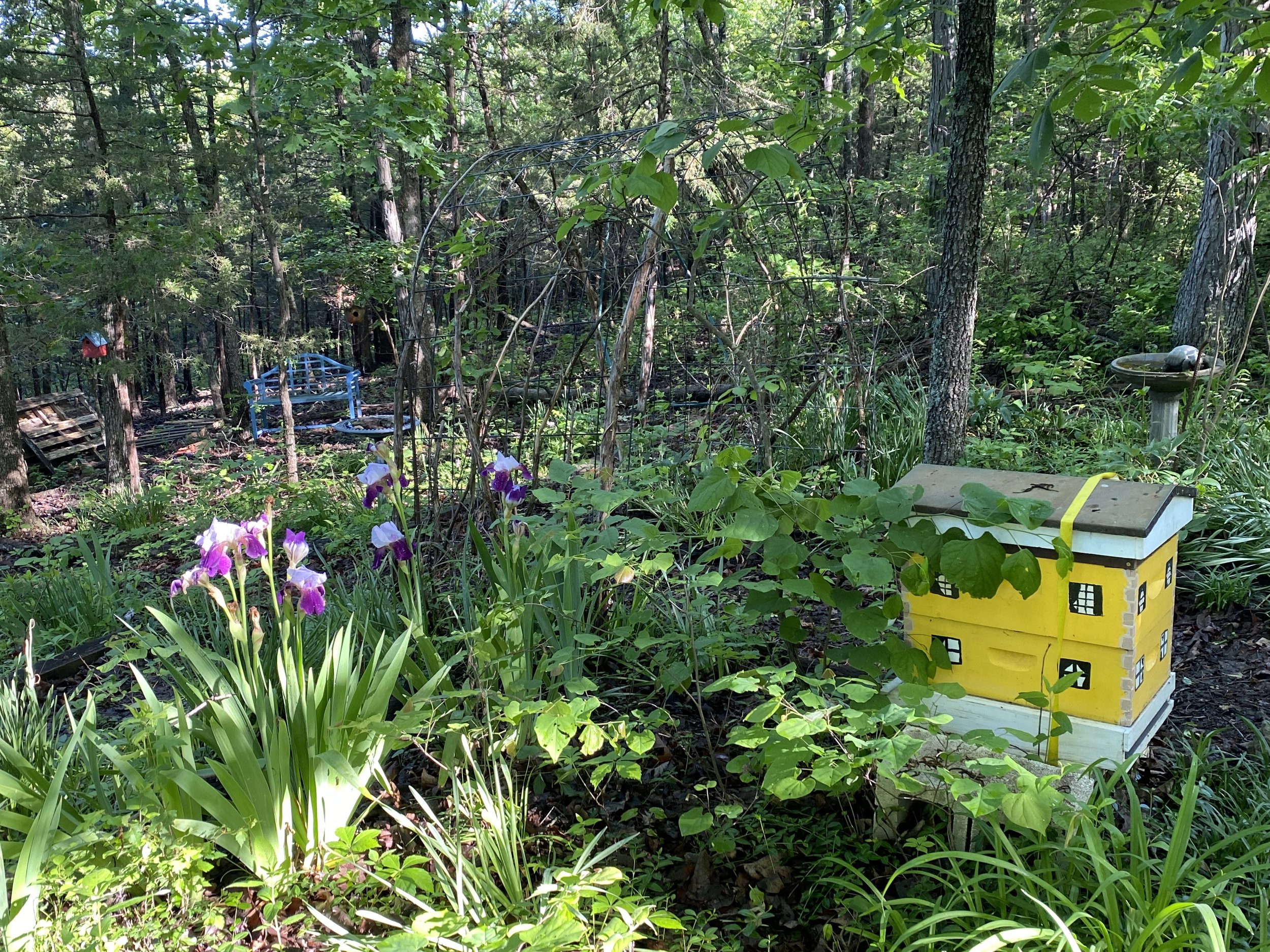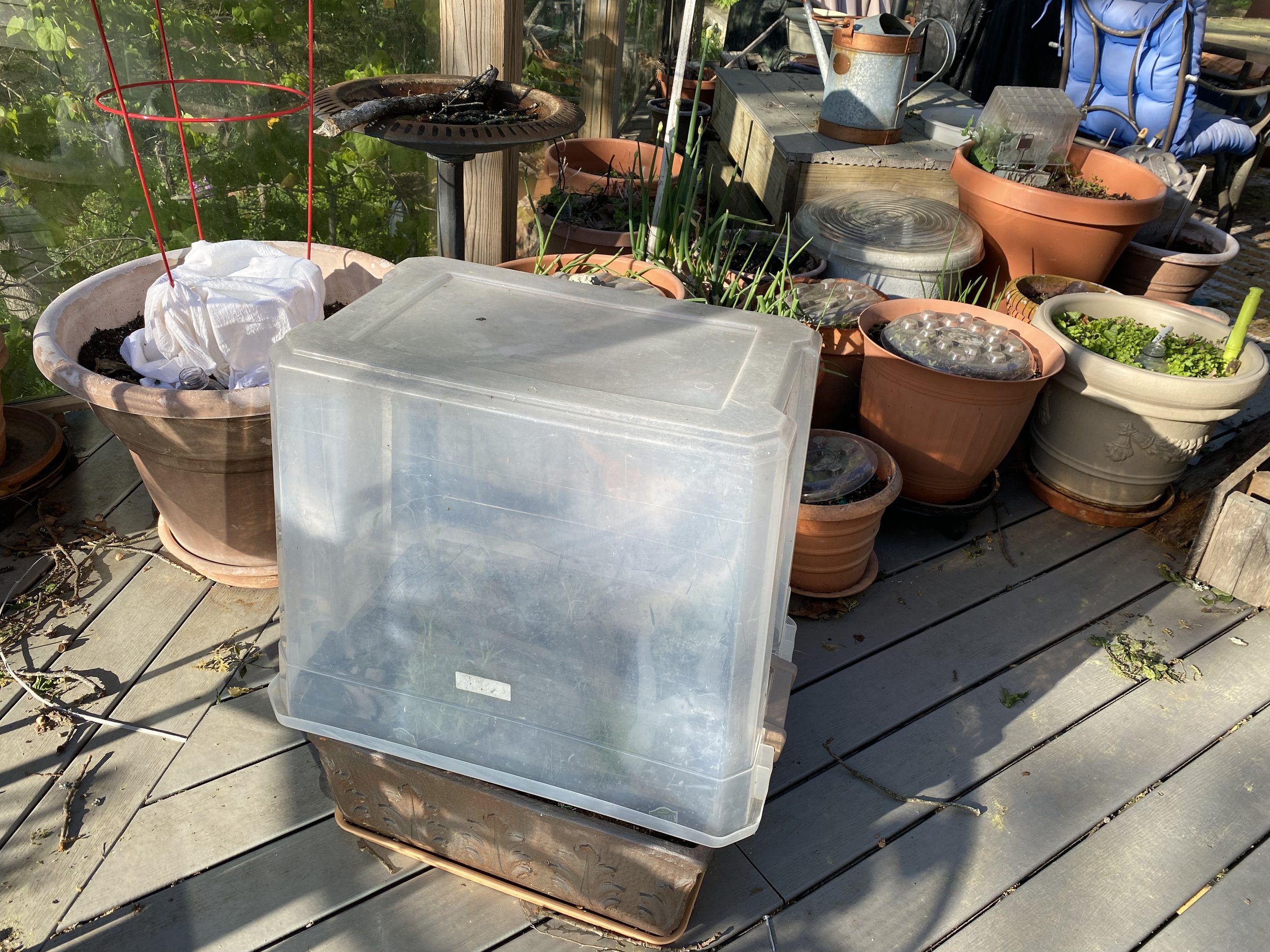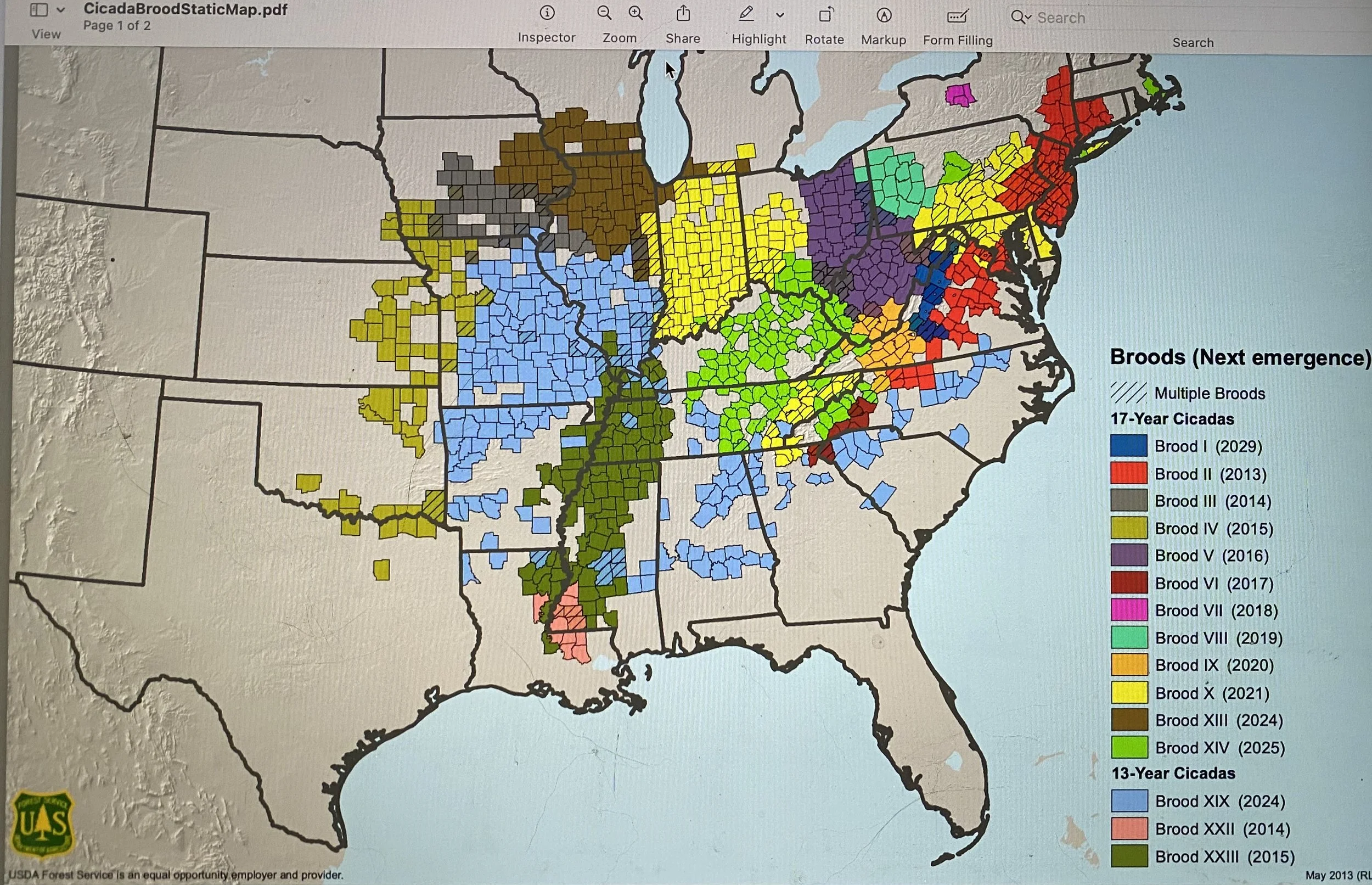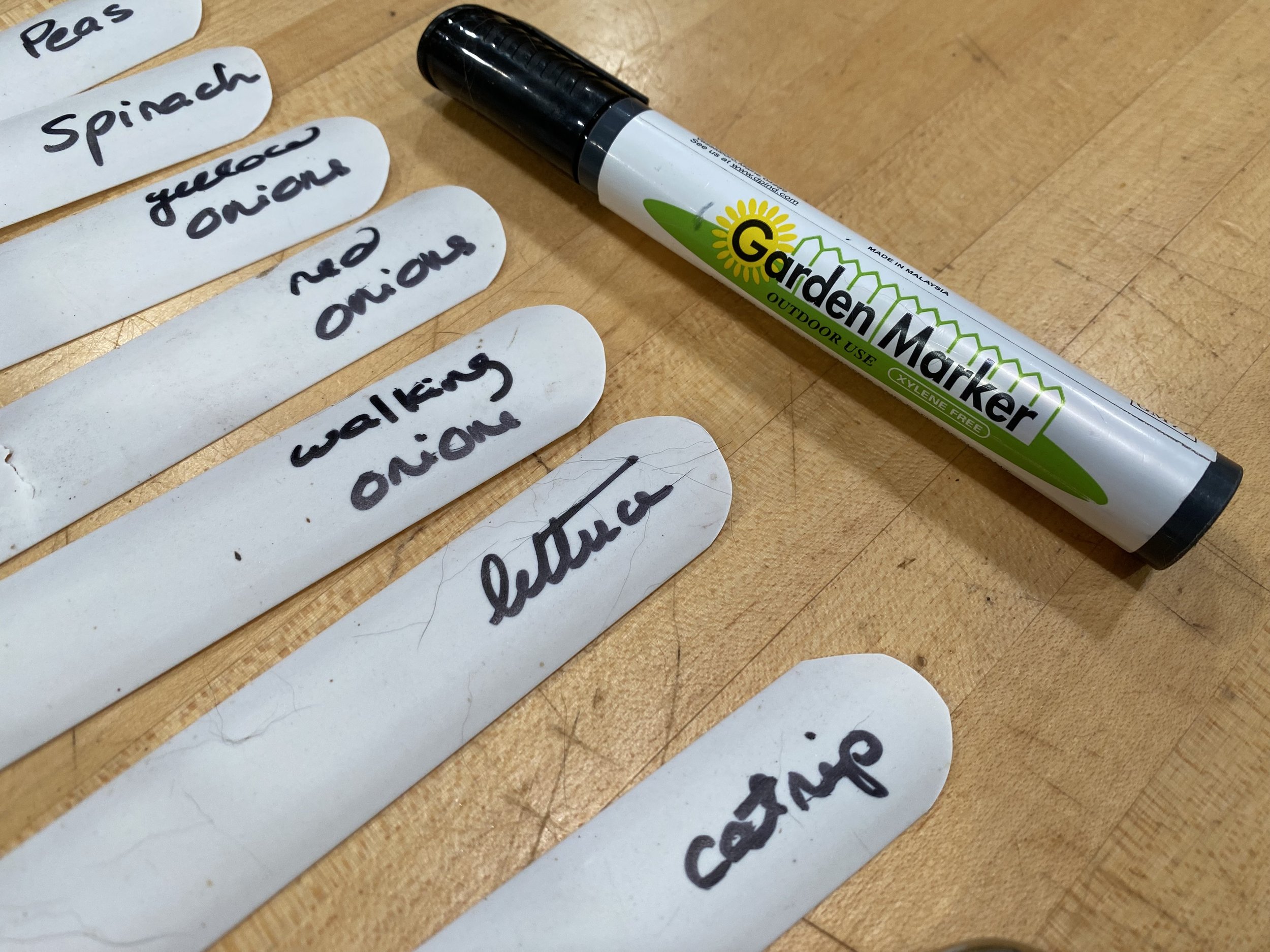Growing Straight Redbuds
/To strengthen Eastern Redbud trunks, try braiding several together. (Photo by Charlotte Ekker Wiggins)
Growing Straight Redbuds
Missouri’s native Eastern Redbuds are a sight during spring. The greyish trunks get covered in small pink edible blossoms, a favorite nectar source for bees.
One of my honey bees visits a blooming Eastern Redbud tree in my spring garden. (Photo by Charlotte Ekker Wiggins)
Growing Eastern Redbuds straight, however, is another matter.
The trees in nature are an understory tree, which means they grow in that area between the ground and the taller trees such as oaks and hickories. They are more on the same level as Missouri’s state tree, the dogwoods, also a spring-blooming tree that often follows in the Eastern Redbud footsteps. I like to think of these trees as the spring Trees of Life, a popular handmade patchwork quilt design.
Living on a Missouri limestone hillside, I tend to encourage as many Eastern Redbuds to grow since they already are established. To help them along, I do several things to encourage their straight trunk growth, starting with the very simple process of tying them to a nearby tree.
I make sure the tree I’m attaching will not compromise its growth by being tied to a nearby Eastern Redbud start.
Doubling and tripling twine ensures the Redbud will grow straight. (Photo by Charlotte Ekker Wiggins)
Sometimes I can use two Eastern Redbud trees to anchor each other in their growth.
Those tend to be similar in size, or a trunk that has double trunk growth to stabilize one Eastern Redbud tree with the other one.
I place the string where I can see it as well as out of the way of my garden paths.
Here two Eastern Redbuds are being encouraged to grow straight together. (Photo by Charlotte Ekker Wiggins)
Periodically there is an Eastern Redbud without anything nearby where I can tie it. Then my handy, reusable pieces of rebar come in handy.
I can place the rebar at an angle to anchor the trunk and tie the Eastern Redbud to it.
Sometimes a piece of rebar helps to hold a Redbud tree trunk straight. (Photo by Charlotte Ekker Wiggins)
When I have several young Eastern Redbud trees growing together, I can pretend to be a spider and weave a web of string between the young trees and a nearby oak. Keep the strings where you can easily see them in case you need to walk through the area.
In terms of when to do this, you can tie up trees almost any time of the year. I would be a little cautious doing it in winter when the tree trunk sap is not running and the trunk may be a little more brittle.
Several Eastern Redbuds are tied to this larger tree trunk to anchor them. (Photo by Charlotte Ekker Wiggins)
It may take a couple of years to give the Eastern Redbuds their straight trunks before I can untie them. The effort is well worth it for the beauty the trees offer my spring garden.
Charlotte


